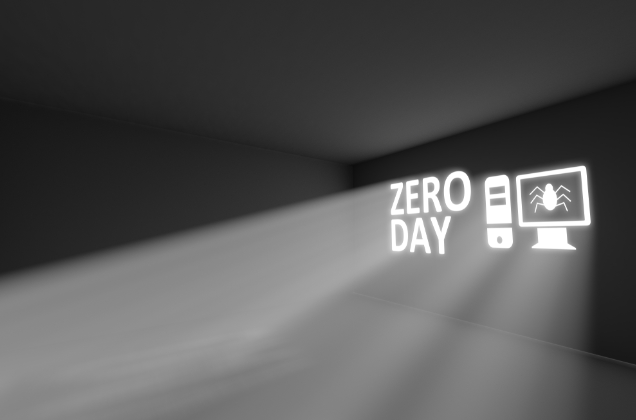Microsoft at present issued software program updates to repair no less than 5 dozen safety holes in Home windows and supported software program, together with patches for 2 zero-day vulnerabilities which might be already being exploited. Additionally, Adobe, Google Chrome and Apple iOS customers could have their very own zero-day patching to do.
On Sept. 7, researchers at Citizen Lab warned they had been seeing energetic exploitation of a “zero-click,” zero-day flaw to put in adware on iOS gadgets with none interplay from the sufferer.
“The exploit chain was able to compromising iPhones working the most recent model of iOS (16.6) with none interplay from the sufferer,” the researchers wrote.
In line with Citizen Lab, the exploit makes use of malicious pictures despatched by way of iMessage, an embedded element of Apple’s iOS that has been the supply of earlier zero-click flaws in iPhones and iPads.
Apple says the iOS flaw (CVE-2023-41064) doesn’t appear to work in opposition to gadgets which have its ultra-paranoid “Lockdown Mode” enabled. This characteristic restricts non-essential iOS options to scale back the system’s general assault floor, and it was designed for customers involved that they could be topic to focused assaults. Citizen Lab says the bug it found was being exploited to put in adware made by the Israeli cyber surveillance firm NSO Group.
This vulnerability is fastened in iOS 16.6.1 and iPadOS 16.6.1. To activate Lockdown Mode in iOS 16, go to Settings, then Privateness and Safety, then Lockdown Mode.
To not be ignored of the zero-day enjoyable, Google acknowledged on Sept. 11 that an exploit for a heap overflow bug in Chrome is being exploited within the wild. Google says it’s releasing updates to repair the flaw, and that restarting Chrome is the way in which to use any pending updates. Apparently, Google says this bug was reported by Apple and Citizen Lab.
On the Microsoft entrance, a zero-day in Microsoft Phrase is among the many extra regarding bugs fastened at present. Tracked as CVE-2023-36761, it’s flagged as an “info disclosure” vulnerability. However that description hardly grasps on the sensitivity of the knowledge doubtlessly uncovered right here.
Tom Bowyer, supervisor of product safety at Automox, stated exploiting this vulnerability may result in the disclosure of Web-NTLMv2 hashes, that are used for authentication in Home windows environments.
“If a malicious actor beneficial properties entry to those hashes, they will doubtlessly impersonate the person, gaining unauthorized entry to delicate information and methods,” Bowyer stated, noting that CVE-2023-36761 will be exploited simply by viewing a malicious doc within the Home windows preview pane. “They may additionally conduct pass-the-hash assaults, the place the attacker makes use of the hashed model of a password to authenticate themselves without having to decrypt it.”
The opposite Home windows zero-day fastened this month is CVE-2023-36802. That is an “elevation of privilege” flaw within the “Microsoft Streaming Service Proxy,” which is constructed into Home windows 10, 11 and Home windows Server variations. Microsoft says an attacker who efficiently exploits the bug can acquire SYSTEM degree privileges on a Home windows pc.
5 of the issues Microsoft fastened this month earned its “vital” score, which the software program large reserves for vulnerabilities that may be exploited by malware or malcontents with little or no interplay by Home windows customers.
In line with the SANS Web Storm Middle, probably the most severe vital bug in September’s Patch Tuesday is CVE-2023-38148, which is a weak point within the Web Connection Sharing service on Home windows. Microsoft says an unauthenticated attacker may leverage the flaw to put in malware simply sending a specifically crafted information packet to a weak Home windows system.
Lastly, Adobe has launched vital safety updates for its Adobe Reader and Acrobat software program that additionally fixes a zero-day vulnerability (CVE-2023-26369). Extra particulars are at Adobe’s advisory.
For a extra granular breakdown of the Home windows updates pushed out at present, take a look at Microsoft Patch Tuesday by Morphus Labs. Within the meantime, contemplate backing up your information earlier than updating Home windows, and regulate AskWoody.com for reviews of any widespread issues with any of the updates launched as a part of September’s Patch Tuesday.
Replace: Mozilla additionally has fastened zero-day flaw in Firefox and Thunderbird, and the Courageous browser was up to date as effectively. It seems the frequent theme right here is any software program that makes use of a code library referred to as “libwebp,” and that this vulnerability is being tracked as CVE-2023-4863.
“This consists of Electron-based purposes, for instance – Sign,” writes StackDiary.com. “Electron patched the vulnerability yesterday. Additionally, software program like Honeyview (from Bandisoft) launched an replace to repair the difficulty. CVE-2023-4863 was falsely marked as Chrome-only by Mitre and different organizations that monitor CVE’s and 100% of media reported this difficulty as “Chrome solely”, when it’s not.”

